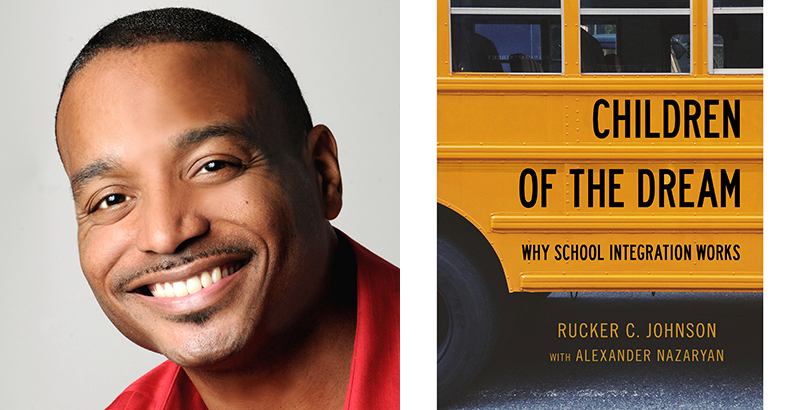A scholar revives the argument for racial integration in schools
A conversation with Berkeley's Rucker Johnson about unintended consequences, charter schools and the data debate

Rucker Johnson, an economist, sees himself as a poster child for school integration.
His grandfather was denied admission to the University of West Virginia, still an all white school after World War II. Johnson’s father was among the first generation of children to attend desegregated schools in Minneapolis. (“People think of segregation as a Southern story,” Johnson said. “That’s a misconception.”) Johnson was educated in Minneapolis’s suburban schools, which he describes as “overwhelmingly white.” In 2011, he became the first black economist to earn tenure at the University of California, Berkeley, and as of May 2019, at age 46, he’s a full professor at the Goldman School of Public Policy at Berkeley. His new book, “Children of the Dream: Why School Integration Works,” (April 2019) recounts the history of school desegregation and presents his research on how black children benefited from the nation’s all-too-brief effort to integrate schools in the 1970s and 1980s. Improvements in academic achievement and college attendance, he found, extended even to the next generation, just as they did for Johnson after his father attended desegregated schools.
The main argument of Johnson’s book is much bigger than racial integration. He says three things are essential for schools to give poor kids a chance to break out of poverty: money, preschool and desegregation. Johnson finds that black children make much larger academic gains when integration is accompanied by more funding for low-income schools. Similarly, the benefits of early child education endure when they’re followed by well-resourced schools. All three — money, preschool and desegregation — are a powerful combination in which the whole is greater than the sum of the parts. “Synergy has the power to take two policies that in isolation seem flat and transform them into one package of policies with profound CONTINUE READING: A scholar revives the argument for racial school integration

